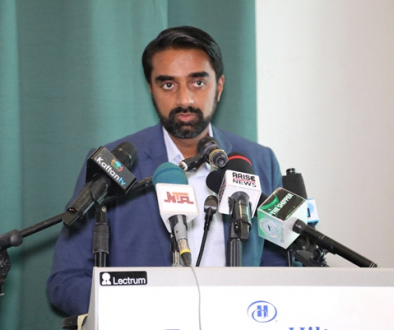The Crawling Giant by Cynthia Akpomudiare

Moody’s Investors Service on Wednesday November 8 downgraded the Government of Nigeria’s long-term issuer and senior unsecured debt rating from B1 to B2 and the senior unsecured MTN program rating and the provisional senior unsecured debt rating from (P)B1 to (P)B2 though the rating outlook remains stable.
The downgrade by Moody was based on three factors: increased external vulnerability, budget execution risks, and elevated interest burden and the following could change the rating up: Positive pressure on Nigeria’s issuer rating could be exerted by: (1) the successful implementation of structural reforms, particularly with respect to public resource management and the broadening of the revenue base; (2) material improvement in institutional strength with respect to corruption, government effectiveness, and the rule of law; (3) the rebuilding of large financial buffers sufficient to shelter the economy against a prolonged period of oil price and production volatility.
In like manner the following could change the rating downwards: Nigeria’s B2 issuer rating could be downgraded if Moody’s concluded that the sovereign’s exposure to a financing shock had materially increased, perhaps because of (1) continued erosion of debt affordability or a material deterioration in the government’s balance sheet in some other respect; or (2) materially weaker medium-term growth, for example as a result of delays in implementing key structural reforms, especially in the oil sector, or continued militancy in the Niger Delta, which undermine the level of oil production over the medium-term.
The Vice President, Prof Yemi Osinbajo, SAN, in San Francisco, on July 11, 2017, declared that the agricultural sector is the way forward for the country’s economy and is an integral part of the country’s plan for sustainable economic growth and development. This view has also been reiterated by the president and commander in chief of the armed forces Muhammadu Buhari in several fora which has culminated in the set-up the Presidential Council on the Ease of Doing Business to attract local and foreign investors. Federal government is in discussion with Carlos, a Mexican agro-business with huge investments in South America to partner with Wells Farm based in the south-south and replicate in the other geopolitical zones in the country. There is already a paradigm shift of seeing Agriculture not as a development programme but a business.
The key driver for the downgrade by Moody was however the “unsuccessful effort at broadening the non-oil revenue base,” an action taken by the Federal Government to address the key structural weakness exposed by the oil price shock. The consequence of this is that while debt levels remain contained notwithstanding recent cyclical improvements, the government’s balance sheet remained structurally exposed to further economic or financial shocks, with very high interest payments relative to revenues and deficits elevated despite cuts in capital spending. These rating signals the likelihood of increased interest element to future borrowings especially since the country requires heightened spend on infrastructure which it plans to finance through foreign loans. Making such loans more affordable will require that the government broadens the current tax base. But how has the government performed on its revenue collections so far? The Treasury Single Account (TSA) introduced in 2015 was primarily designed to bring all Government funds in bank accounts within the effective control and operational purview of the Treasury, in order to enthrone centralised, transparent and accountable revenue management amongst other things. However, in spite of successes recorded by the TSA, there is still a huge lacuna between actual tax collections and remittances to this account.
Do share your thoughts via email at aviga@cbinigeria.com, on Twitter @CBiNGR, @PINS2015 with the hashtag #TheCrawlingGiantNG


